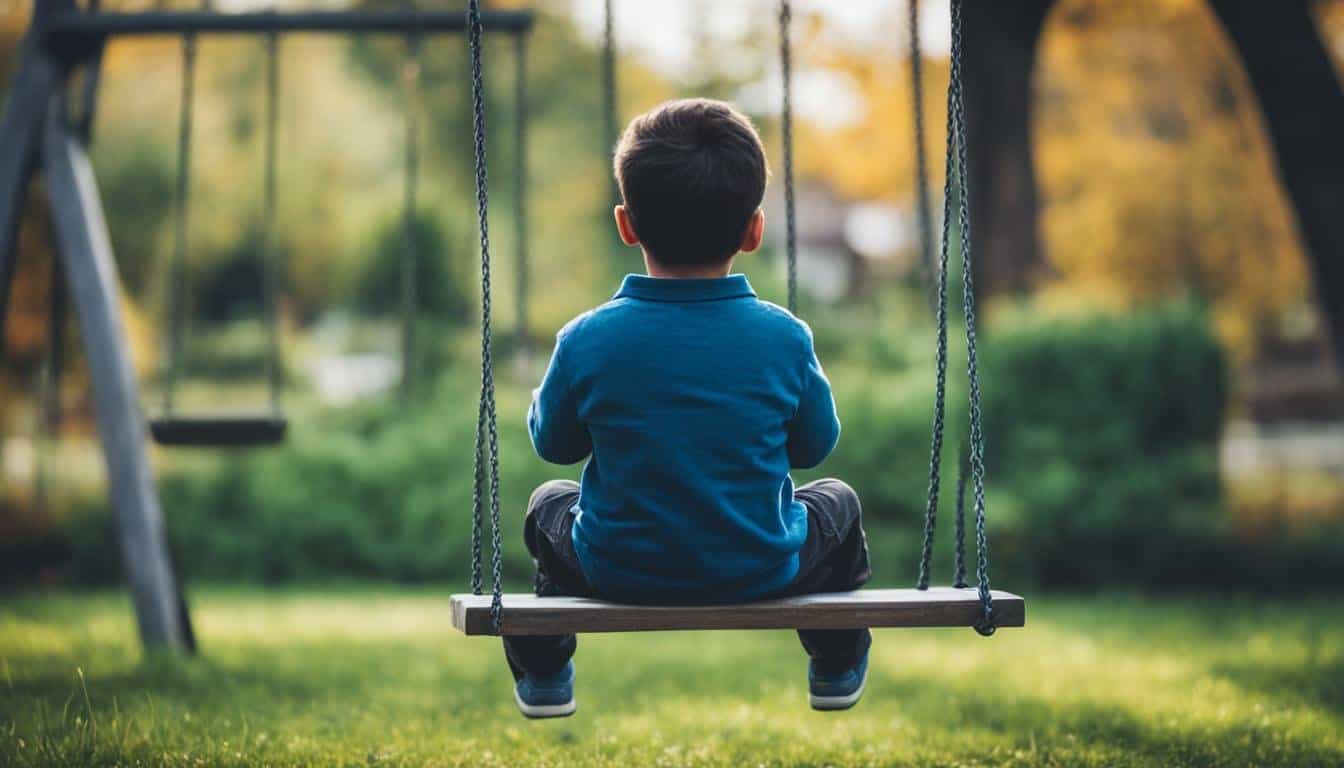The Impact of Childhood Experiences on Adult Life
Welcome to our article on the impact of childhood experiences on adult life. Childhood experiences, both positive and adverse, play a crucial role in shaping our well-being and future. From emotional experiences to overall childhood development, these early years have long-term effects on our mental health and adult experiences.
Childhood trauma, in particular, can have profound consequences on our well-being. Adverse childhood experiences can impact our mental health, relationships, and overall quality of life. On the other hand, positive childhood experiences act as a foundation for healthy family dynamics and promote a sense of well-being in adulthood.
Key Takeaways
- Childhood experiences have a significant impact on adult well-being and development.
- Adverse childhood experiences can have long-term effects on mental health.
- Positive childhood experiences create a foundation for better family health in adulthood.
- Recognizing and addressing childhood trauma is essential for fostering healthier individuals and families.
- Resilience and support can mitigate the negative effects of adverse childhood experiences.
The Association Between ACEs and Family Health in Adulthood
Research has found that adverse childhood experiences (ACEs) and positive childhood experiences (PCEs) have a significant impact on family health in adulthood.
ACEs, such as trauma, abuse, or neglect, can negatively affect the social and emotional health processes within a family. They can hinder effective communication, problem-solving, and overall family functioning. ACEs can also limit access to important resources necessary for maintaining family health, such as healthcare services, nutrition, and educational opportunities.
However, it’s not just negative experiences that influence family health. Positive childhood experiences (PCEs), such as supportive relationships, a nurturing environment, and access to resources, can promote family health and well-being in adulthood.
PCEs have been found to positively influence all four domains of family health, including:
- Family social and emotional health processes
- Family healthy lifestyle
- Family health resources
- Family external social supports
The impact of PCEs on these domains has been observed even after accounting for the effects of ACEs. This suggests that nurturing and positive experiences in childhood can act as protective factors, buffering the negative impact of adverse experiences on family health.
To better understand and quantify the association between childhood experiences and family health, researchers have used structural equation modeling. This statistical technique allows for the examination of complex relationships between variables and provides insights into how different factors interact and influence family health outcomes.
The Definition and Importance of Family Health
Family health is a vital aspect of overall well-being for every individual within the family unit. It encompasses various elements, including family functioning, communication and problem-solving, family experiences, healthy lifestyle, health resources, and external social supports. These factors contribute to the overall health and happiness of each family member and foster a positive, nurturing environment.
One of the key components of family health is family functioning, which refers to how well the family unit operates together. This includes the ability to resolve conflicts, make decisions together, and support each other’s emotional needs. Effective communication and problem-solving skills are crucial for maintaining strong family relationships and addressing challenges as a cohesive unit.
Family experiences also play a vital role in family health. Positive experiences, such as shared activities, celebrations, and bonding moments, create a sense of closeness and strengthen familial bonds. Conversely, negative experiences, such as trauma or conflict, can impact family dynamics and overall well-being.
Adopting a healthy lifestyle as a family is another essential aspect of family health. This includes engaging in regular physical activity, maintaining a nutritious diet, and prioritizing mental and emotional well-being. By establishing healthy habits together, families can support each other’s well-being and set the foundation for a lifetime of good health.
“Family health is not just about the absence of illness; it is about nurturing strong relationships, promoting open communication, and actively supporting each other’s well-being.”
Families also require access to adequate health resources to ensure optimal health. This can include healthcare services, preventive screenings, mental health support, and information about healthy living. Having the necessary resources readily available empowers families to make informed decisions and take proactive steps towards maintaining their well-being.
Additionally, external social supports are crucial for family health. These supports can include extended family members, friends, neighbors, community organizations, and support groups. Building a strong network of support outside the family provides opportunities for social connection, guidance, and assistance during challenging times.
Family health is interconnected with individual health, as the well-being of each family member impacts the overall functioning of the family unit. By prioritizing family health, individuals can experience increased happiness, better physical and mental health, and improved quality of life. Investing in family health strengthens family bonds, promotes resilience, and creates a nurturing environment for all.
| Components of Family Health | Description |
|---|---|
| Family Functioning | Includes effective communication, conflict resolution, and support among family members |
| Communication and Problem-Solving | Open and constructive communication, as well as the ability to solve problems together |
| Family Experiences | Positive experiences that strengthen familial bonds and negative experiences that may require healing and support |
| Healthy Lifestyle | Prioritizing physical, mental, and emotional well-being through regular exercise, healthy eating, and self-care practices |
| Health Resources | Access to healthcare services, preventive screenings, and information to support informed health decisions |
| External Social Supports | Network of extended family, friends, neighbors, and community organizations that provide social connection and assistance |
The Interplay Between Childhood Experiences and Family Health
Childhood experiences play a crucial role in shaping family health in adulthood. The intergenerational transmissibility of family health highlights how patterns and routines established during early experiences can have a lasting impact on the well-being of future generations.
The Life Course Theory provides valuable insights into the connections between childhood experiences, family functioning, and long-term health outcomes. This theory emphasizes the concept of linked lives, recognizing that individuals are not isolated entities but rather interconnected within their family and broader social contexts.
Human agency, another key principle of the Life Course Theory, underscores the potential for individuals to make choices and exert control over their lives, even in the face of challenging circumstances. This emphasizes the importance of supportive environments and resources that enable individuals to navigate the effects of childhood experiences and promote positive family health.
The life course perspective considers the dynamic nature of lifelong development and aging, acknowledging that the effects of childhood experiences can evolve over time. This approach recognizes that family health is influenced by a complex interplay of individual choices, societal factors, and developmental processes.
“The interplay between childhood experiences and family health is a multifaceted phenomenon. Family patterns and routines, influenced by early experiences, can either perpetuate negative health outcomes or promote resilience and well-being. Understanding these dynamics is essential for fostering healthier families and communities.”
To illustrate the impact of childhood experiences on family health, consider the following table:
| Family Patterns and Routines | Impact on Family Health |
|---|---|
| Positive and supportive family interactions | Promotes emotional well-being and resilience |
| Healthy lifestyle practices | Reduces the risk of chronic diseases |
| Lack of routines and structure | Increases the likelihood of unhealthy behaviors |
| Exposure to adverse childhood experiences (ACEs) | Can lead to negative physical and mental health outcomes in adulthood |
As shown in the table, family patterns and routines influenced by childhood experiences can have a significant impact on family health. Positive interactions, healthy lifestyle practices, and stability contribute to better overall well-being. Conversely, a lack of structure and exposure to ACEs can increase the risk of adverse health outcomes.
The interplay between childhood experiences and family health underscores the importance of addressing the impact of ACEs and promoting positive experiences within families. By understanding these dynamics, individuals and communities can work towards creating nurturing environments that support lifelong health and well-being.
The Effects of ACEs and PCEs on Individual Health in Adulthood
Adverse childhood experiences (ACEs) can have a profound impact on an individual’s health in adulthood. Studies have shown that individuals who have experienced ACEs are at a higher risk of developing mental health issues such as depression, anxiety, and substance abuse. These detrimental health behaviors can have long-lasting effects on overall well-being and quality of life.
On the other hand, positive childhood experiences (PCEs) play a protective role and promote better health outcomes in adulthood. Individuals who have had nurturing and supportive experiences in their early years are more likely to exhibit resilience and engage in healthy behaviors.
Resilience theory and the life course theory provide valuable insights into the promotive factors that can mitigate the effects of ACEs and promote better individual and family health. Resilience theory emphasizes the capacity for individuals to overcome adversity and thrive despite challenging circumstances. It recognizes that certain factors, such as supportive relationships and positive coping strategies, contribute to resilience and improved mental health outcomes.
The life course theory, on the other hand, considers the cumulative impact of experiences throughout a person’s life. It recognizes that childhood experiences, both positive and negative, can shape an individual’s development and health outcomes in adulthood. By understanding the interplay between childhood experiences and adult health, interventions and support systems can be implemented to foster better individual health and well-being.
Overall, the effects of ACEs and PCEs on individual health in adulthood highlight the importance of early intervention, trauma-informed care, and supportive environments. By addressing adverse experiences and promoting positive experiences, we can strive to create healthier individuals and communities.
| Effects of ACEs and PCEs on Individual Health in Adulthood |
|---|
| Increase in mental health issues |
| Higher risk of depression, anxiety, and substance abuse |
| Detrimental health behaviors |
| Protective role of PCEs |
| Promotion of resilience |
| Importance of trauma-informed care |
The Economic Impact of Childhood Experiences
The economic impact of childhood experiences cannot be overlooked. Research suggests that adverse childhood experiences (ACEs) have far-reaching consequences that go beyond individual well-being and extend to healthcare costs and the North American healthcare system as a whole.
Studies have estimated that a 10% reduction in ACEs could result in a staggering $56 billion annual savings for the North American healthcare system. This significant economic impact highlights the importance of addressing childhood trauma and investing in preventative measures.
The socioeconomic status of individuals also plays a crucial role in determining their health outcomes and the associated healthcare costs. Disparities in socioeconomic status can lead to unequal access to affordable healthcare, nutritious food, and community resources, which in turn contribute to health disparities.
By treating adverse childhood experiences, we can potentially reduce the negative health outcomes associated with childhood trauma. This proactive approach focuses not only on individual well-being but also on preventing the economic burden that such experiences place on the healthcare system.
Economic Impact of Childhood Experiences:
| Economic Impact | Healthcare Costs | North American Healthcare System | Socioeconomic Status and Health | Health Disparities |
|---|---|---|---|---|
| $56 billion annual savings | Adverse childhood experiences (ACEs) | Reduced healthcare costs | Unequal access to healthcare | Preventative measures |
Investing in the treatment of ACEs is not only a compassionate approach but also a strategic one that promotes better health outcomes and long-term cost savings. Recognizing the economic impact of childhood experiences emphasizes the need for comprehensive support systems and policies that prioritize the well-being of individuals and families.
Childhood Trauma and its Consequences
Childhood trauma encompasses various potentially traumatic events experienced during childhood, including physical abuse, emotional abuse, sexual abuse, and neglect. When children witness or endure such traumatic events, they become vulnerable to physical and mental health issues as they grow older.
Trauma has far-reaching effects, impacting not only the psychological well-being but also the physiological functions of individuals. It can alter the stress response, causing dysregulation in hormonal pathways and significant developmental consequences.
For instance, when confronted with traumatic experiences, the body’s stress response system, including the hypothalamic-pituitary-adrenal (HPA) axis, becomes activated. This activation triggers the “fight-or-flight” response, leading to physiological changes designed to deal with threats and ensure survival.
Furthermore, trauma can also affect the brain’s reward circuits, which regulate pleasure and motivation. Dysregulation in these circuits can result in long-lasting effects on an individual’s emotional and behavioral responses.
The developmental impact of childhood trauma varies based on the age at which it occurs. Younger children may experience difficulties in forming attachments, establishing trust, and developing appropriate coping mechanisms. Adolescents, on the other hand, may exhibit high-risk behaviors or struggle with emotional regulation and forming healthy relationships.
The consequences of childhood trauma reach far beyond the immediate experience, causing long-term health issues and impairments. Therefore, it is crucial to recognize and address childhood trauma promptly to minimize its detrimental effects on individuals and society as a whole.
Childhood trauma can have a profound impact that extends into adulthood, reshaping the course of one’s life. It is imperative that we create supportive environments and provide resources to help those who have experienced trauma heal and thrive.
Categories of Childhood Trauma
| Trauma Category | Description |
|---|---|
| Physical Abuse | Physical harm or injury inflicted on a child by a caregiver, resulting in pain, fear, or discomfort. |
| Emotional Abuse | Psychological mistreatment or neglect that can lead to emotional and psychological harm, such as constant criticism, humiliation, or rejection. |
| Sexual Abuse | Involvement of a child in sexual activities, exploitation, or exposure to inappropriate sexual behavior. |
| Neglect | Failure of a caregiver to provide the necessary physical, emotional, or educational needs, leading to physical and emotional harm. |
Signs of Trauma in Children and Adults
Trauma can have significant effects on individuals, both in childhood and adulthood. Recognizing the signs of trauma is essential for early intervention and treatment. In children, trauma can manifest in various ways:
- Sleep troubles, such as nightmares or bedwetting
- Depression, sadness, or withdrawal
- Nervousness, anxiety, or constant worry
- Aggression, anger, or acting out
- Avoidance of certain people, places, or activities
- Physical symptoms like headaches or stomachaches with no medical explanation
In adults, unresolved childhood trauma can lead to a range of issues:
- Substance misuse or addiction as a coping mechanism
- Stress and anxiety disorders
- Behavioral issues, such as impulsivity or self-destructive behavior
- Difficulties with confrontation or conflict
It’s important to note that the effects of trauma can extend beyond immediate symptoms. Research has shown that unresolved childhood trauma can have long-term health outcomes, including an increased risk of depressive disorders, chronic diseases, and obesity.
By recognizing the signs of trauma and seeking appropriate intervention and treatment, individuals can address the impact of childhood trauma and work towards improved overall well-being.
Conclusion
Childhood experiences have a profound and lasting impact on adult life. Adverse childhood experiences can have detrimental effects on mental health, family health, and the economy. The long-term effects of childhood trauma can contribute to negative mental health outcomes, such as depression and anxiety, and can impair overall well-being in adulthood.
However, it is important to recognize that positive childhood experiences and the presence of resilience can mitigate some of these effects. Cultivating a supportive family environment, providing resources, and promoting healthy coping mechanisms can help individuals overcome the challenges associated with childhood trauma.
Addressing childhood trauma is not only crucial for the individuals affected but also for the well-being of families and communities as a whole. By understanding the impact of childhood experiences and implementing preventive measures and interventions, we can foster healthier individuals, families, and communities, leading to a brighter future for all.







